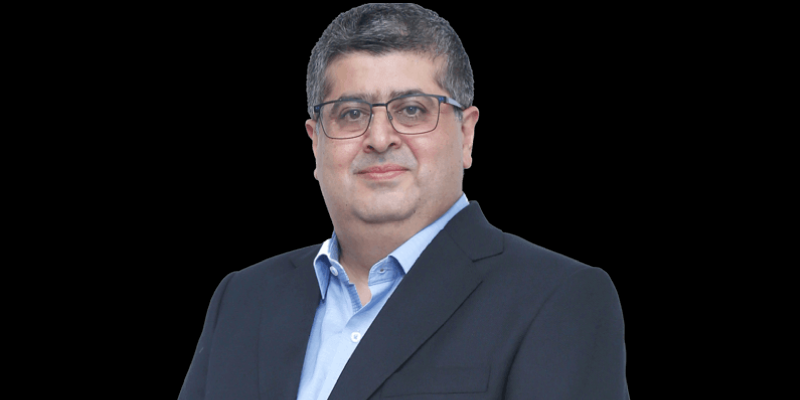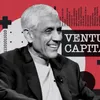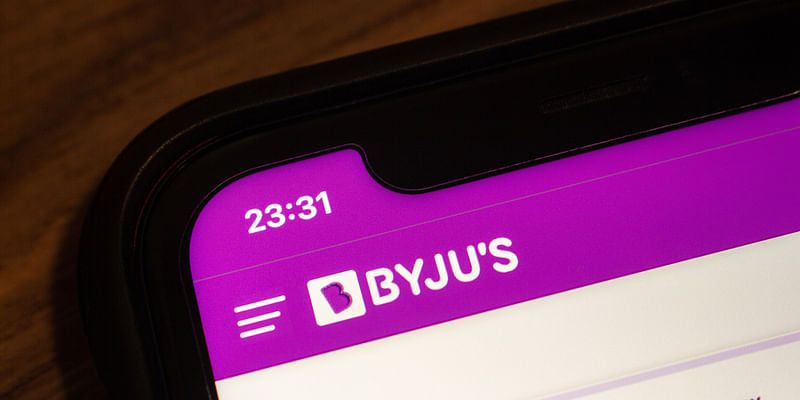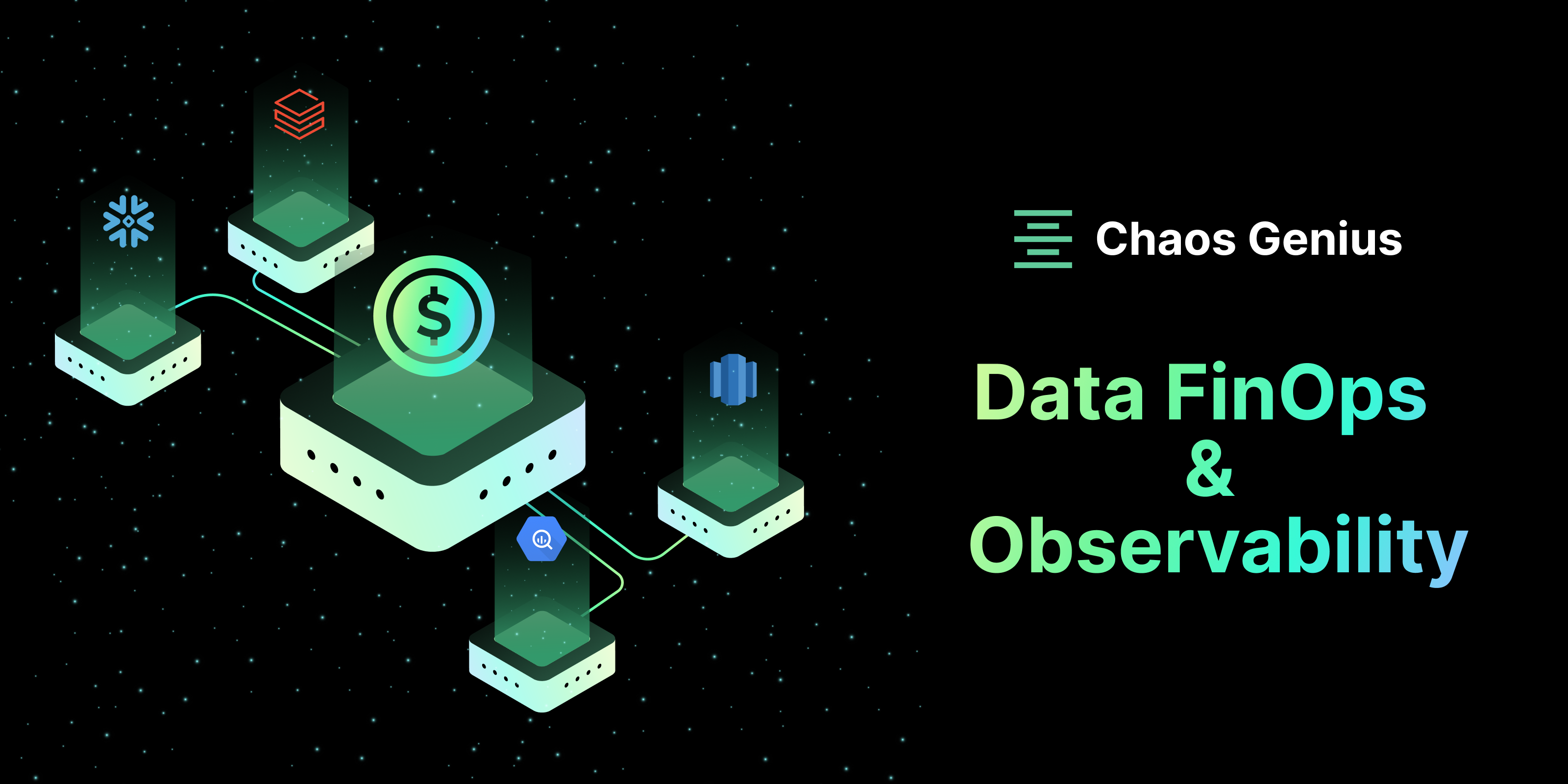‘We need founders to take the risk and pivot instead of being stubborn about existing business models,’ says investor Ash Lilani
In this episode of 100X Entrepreneur Podcast, investor Ash Lilani, Founder of Saama Capital, a pioneer of early VCs since 2003, the year considered as the birth year of VCs in India, takes a candid look at VCs, entrepreneurs, and growing their stack.
The 100X Entrepreneur Podcast’s edition this week sees Ash Lilani, Founder of Saama Capital, share insights around investing in India, and the biggest exits his firm has made.
Despite starting a career in different geographies, Ash saw the potential of the Indian and Chinese markets, and is one of the few who helped and convinced global VC firms to set up operations in India.
The early days of investing
Ash grew up in Kenya, though he visited Mumbai every year on family trips. After high school in Kenya, he did his B.Com at Bangalore University.

Ash Lilani, founder of Saama Capital
“After that, I went to Philadelphia for my MBA. Then I got my first job. I graduated at a time when the economy was tough, and the only job I could get was in banking. So, by default I became a banker,” says Ash.
Doing something unique in banking was Ash’s foremost agenda. He was fortunate to find himself bang in the middle of the intersection between technology and venture capital. He did a stint at Silicon Valley Bank after working for a few other banks.
“I joined them to open their Philadelphia office. As the internet bubble burst in 2002, every internet company was facing a problem in the Bay area,” Ash says.
During this time, Greg Becker, CEO of Silicon Valley Bank asked Ash to help him in the area where there were a large number of VCs. So, he moved to Silicon Valley which in hindsight was the best decision he made.
“Silicon Valley was the heart bed of innovation. In 2002, when the bubble burst, I realised the biggest problem was capital efficiency. And the best way to improve capital efficiency was to move production and development somewhere outside the valley. I believed that India and China would become huge markets someday. So, I walked up and down Sand Hill Road (Silicon Valley), spoke to VCs about exploring India and China. Initially, they were hesitant but I explained that I was not talking about investing in India, but leveraging India and China to help companies.”
They then undertook a historical trip to India in 2003, which created a landmark in the birth of VCs in India. “The only condition I insisted on was they should see the good, the bad and the ugly in the tiny community in India. In that trip, there were 23 VCs, each deputed a decision maker.”
At the conclusion of the trip, 19 of the 23 VCs asked Ash how they could work in India. He was their eyes and ears as initially, the funds sent teams that were helped by the Indian consulting team in every aspect - from finding hotel rooms and real estate space to funding leaders for the development of teams and opening the door for sales, etc. Some VCs left after a few years, some left halfway while others built amazing businesses. “The trip was a sort of germination for them in India,” Ash adds.
Siddhartha Ahluwalia, Founder of 100x Entrepreneur Podcast and Co-founder of SHEROES, caught up with Ash Lilani in this episode of the podcast, a series that features venture capitalists and angel investors.
100X Entrepreneur Podcast is an exploration of the habits, mindsets and viewpoints that can help entrepreneurs scale 100x.
Tune in to listen to Ash Lilani in conversation with Siddhartha:
His two theses on investment
Ash had two theses – one in 2003 and another in 2006.
He says, “In 2003, my logic was – we have a country with a large population and educated talent. Let’s admit we were not innovators, but we could execute (well). We could develop somebody else’s vision, even if we were not producing products at that time.”
Producing products where he was living was expensive, and Ash knew that sourcing it in India was less expensive. So that’s how he helped improve the capital efficiency of those companies.
About the second thesis, Ash explains, “We have a growing middle class. Disposable incomes are going up, and if you believe in India’s story, at some point, you are going to have aspiring consumers and a younger demographic. It was all about faith in what was going to happen. It took five years longer than expected, but it happened. So, it was about two things: India as a place to develop software and products and India as a market because of its demography. Same thing was about China.”
“In that historic trip, we had Sequoia, Battery Ventures, Canaan Partners, Lightspeed, Matrix, Accel, and others.” Many stuck out to build large firms in India, others like Canaan tried but eventually pulled out. More importantly, what this did was, it gave exposure to other firms like WestBridge Capital,” Ash adds.
Ash recalls, “There was a symbiotic relationship between VCs and SVB (Silicon Valley Bank). We were not just a bank for them. We had seeded many of these VCs, and funded them from our balance sheet. We were partners, we were strategic to them. We were just there as an extension of them. We banked 67 of their portfolio companies globally. We were there to add value, lead them from the front, educate them about the market, with a goal that they would open their independent offices and run by themselves.”
About Saama Capital
“When the first fund was formed in 2005-06, many deals took place. We noticed the trend of a lack of collaboration. There were a lot of competitive elements then. We were neutral. I came up with an idea, ‘why can’t we go out and be an investor with a larger investor because they trust us?”
On Ash’s advice, Silicon Valley Bank decided to shift gears, and turned from passive investor to active investor. That was the start, and eventually, they founded Saama Capital. “We had a very deep relationship with Silicon Valley Bank and even today it’s like a family,” says Ash.
Among the first investment’s Ash was a part of was One97, the parent company of Paytm. About Vijay Shekhar Sharma, founder, Paytm, Ash says, “He is a visionary. Every time people questioned him, he came up with a solution. Back then when he had invested in One97, it was about caller tunes and ring back tunes. It was about VAS. Vijay had the insight to come back to us and reveal that operators and regulators were squeezing the business. He felt that this business had the danger of going away, and we needed to find another form of income. He said that he knew (all about) mobile phones, and asked if he could go and do the business of recharging mobile phones. Frankly speaking, we indulged him. He started that and later came back saying people were leaving money in their wallets. What can we help them buy? We were fortunate to have a visionary like Vijay.”
The meeting with Vijay was one of the most chaotic ones in Ash’s life. Yet, Ash is a gut investor. There was something about Vijay – a child-like energy with an unbound vision.
“We are betting on early-stage companies. We have founders, we have a market and we have disruption. Vijay exemplified all three. I believed that Vijay would do something,” Ash recalls.
As an investor, Ash looks at companies’ whose founders having the courage to pivot. “My best successes have come from companies that have pivoted. We need founders to take the risk to pivot instead of being stubborn about their existing business model. As investors, we are always supporters, but it is always the founders who have the vision to execute,” he adds.
The other portfolio company that pivoted was Snapdeal, that actually started as a coupon company but eventually made a transition into marketplace.
Purpose of life
“I am a people person. I build relationships, and make them deep(er). I love what I do. I love working with entrepreneurs. The younger the entrepreneurs, the earlier the companies, the happier I am,” Ash reveals. Speaking about the sectors close to his heart, it’s consumer products, fintech (predictably as he is a reformed banker), and Artificial Intelligence. “If you love what you do, it makes everything much easier,” Ash advises.
“Life is too short. So, maximise every single day. Spend time with the people you love. Back founders you absolutely believe in. Help them create amazing companies. Leave a legacy behind,” he adds.
Investment strategy
A few of the companies Saama has invested in are LendingKart, Chai Point, Raw Pressery, Sula Vineyards, Shaadi.com, Games2Win, SKS Microfinance, DailyNinja, etc.
“As a firm, we never focus on categories. But the only thing that has been consistent is consumer goods – from Sula and Raw Pressery to The Mom’s Co and Chai Point.”
“When we meet a company, I and my partner try to find out whether the founder is passionate. Do they understand that their product is going to make an impact or a disruption? The third thing, we try to find out about is how big is the market?.”
On the unsurmountable risks that exist today, Ash says, “Today, there is a lot of market noise. We see companies (focused on) getting investors at highest valuations rather than getting the right investors. Because they raise funding at such high valuations, follow-on rounds become a problem,” Ash explains.
“Businesses have failed probably because they pushed too fast, too soon, raised money at a high price, and sometimes the market doesn’t work out. And for those entrepreneurs who try everything, but the market didn’t work out, my advice to them is - don’t worry, failure can be a badge of honour sometimes. Go do something new, and if you have smart VCs, they will back you again,” he adds.
The big exits
Paytm and Snapdeal are the two big exits for Saama Capital. Ash also stresses that exits shouldn’t be disruptive. It must be completely transparent and be done after taking the management into confidence.
“Our founders help each other. They are like a family. When we are trying to invest in a new company and competing with other funds, the companies see our power (collaborative nature of the network). We do a lot to foster that relationship in our family,” he adds.
In conclusion, Ash shines a torch on new VCs and how they can scale, “Focus on building networks and relationships with entrepreneurs. At the end of the day, that is what has helped my career. My relationships and network helped me get the deal flow. The best sign of a good VC firm is when its existing companies’ CEOs send you deals. They send you the best references.”
(Edited by Suruchi Kapur Gomes)











